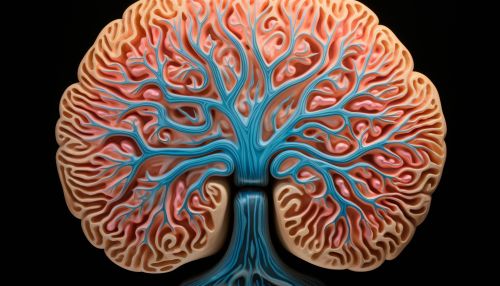Cognitive Neuroscience of Prospective Memory
Introduction
Cognitive neuroscience of prospective memory is a field that examines the neural basis of the ability to remember to perform an intended action in the future. This involves a complex interplay of cognitive processes, including attention, working memory, and executive functions, which are mediated by various brain regions. The study of prospective memory in cognitive neuroscience has implications for understanding normal brain function, as well as various neurological and psychiatric disorders.


Cognitive Processes Involved in Prospective Memory
Prospective memory involves several cognitive processes, including intention formation, intention retention, intention initiation, and intention execution. Each of these stages involves different cognitive processes and is mediated by different brain regions.
Intention Formation
Intention formation involves deciding to perform a certain action in the future. This process requires the ability to form a mental representation of the future action, which is a function of the prefrontal cortex.
Intention Retention
Once an intention is formed, it needs to be retained in memory until the appropriate time for execution. This process involves the hippocampus, which is responsible for memory consolidation, and the prefrontal cortex, which is involved in working memory.
Intention Initiation
Intention initiation involves recognizing the appropriate cue to perform the intended action. This process requires attentional resources and is mediated by the anterior cingulate cortex, which is involved in attentional control.
Intention Execution
Once the cue is recognized, the intended action needs to be executed. This process involves the motor cortex, which is responsible for initiating voluntary movements.
Neural Basis of Prospective Memory
The neural basis of prospective memory is complex and involves multiple brain regions. The prefrontal cortex, anterior cingulate cortex, and hippocampus are particularly important, but other regions, such as the parietal cortex and basal ganglia, are also involved.
Prefrontal Cortex
The prefrontal cortex is involved in many aspects of prospective memory, including intention formation, intention retention, and intention initiation. It is thought to play a role in the formation of mental representations of future actions, the maintenance of these representations in working memory, and the recognition of cues to initiate the intended action.
Anterior Cingulate Cortex
The anterior cingulate cortex is involved in attentional control, which is crucial for prospective memory. It is thought to be responsible for monitoring for the occurrence of cues to initiate the intended action.
Hippocampus
The hippocampus is involved in the retention of intentions in memory. It is thought to be responsible for the consolidation of intentions, which allows them to be retained over time.
Other Brain Regions
Other brain regions are also involved in prospective memory. For example, the parietal cortex is thought to be involved in the attentional processes required for intention initiation, and the basal ganglia are thought to be involved in the execution of intended actions.
Implications for Neurological and Psychiatric Disorders
Understanding the cognitive neuroscience of prospective memory has important implications for neurological and psychiatric disorders. Many of these disorders, such as Alzheimer's disease, schizophrenia, and ADHD, are characterized by prospective memory deficits.
Alzheimer's Disease
In Alzheimer's disease, prospective memory deficits are among the earliest cognitive symptoms. These deficits are thought to be due to damage to the hippocampus and prefrontal cortex, which are crucial for prospective memory.
Schizophrenia
Schizophrenia is characterized by deficits in prospective memory, which are thought to be due to abnormalities in the prefrontal cortex and anterior cingulate cortex. These deficits can contribute to functional impairments in daily life.
ADHD
In ADHD, prospective memory deficits are common and are thought to be due to abnormalities in the prefrontal cortex and anterior cingulate cortex. These deficits can contribute to difficulties in academic and occupational functioning.
Conclusion
The cognitive neuroscience of prospective memory is a complex field that involves the study of various cognitive processes and brain regions. Understanding the neural basis of prospective memory has important implications for understanding normal brain function, as well as various neurological and psychiatric disorders.
